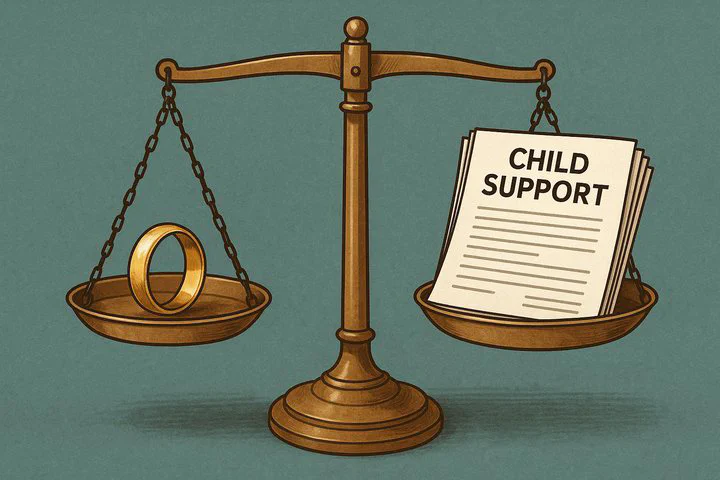Texas Child Support Adjustment After Remarriage

Texas Child Support Adjustment After Remarriage
Starting a new marriage is exciting, but it can also make your money world flip upside down. If you pay or receive child support, you may worry about how this new life change affects your payments. Knowing the rules about a Texas child support adjustment after remarriage can help you protect your child, your new family, and your peace of mind. We know this process can feel overwhelming, but you’re taking a positive step for everyone you love.
Understanding Child Support Adjustments in Texas
A child support “adjustment” means asking the court to raise, lower, or keep the same payment because something big has changed.
When you remarry, your:
- House income can go up or down
- Monthly bills can shift
- Number of children you help support may grow
Any of these changes can cause you to look at a Texas child support adjustment after remarriage. The court mainly checks the paying parent’s income, health-insurance cost, and how many kids need support. Your new spouse’s paycheck usually does not count, but it can free up—or tighten—your own cash.
Key points to remember:
- If your pay changes by 20% or more, or it has been three years since the last order, the court may review your case.
- Keep pay stubs, tax returns, and household bills in one safe spot.
- Fair numbers protect your child and your new family at the same time.
Is It Time to Rethink Your Payments?
You might be asking, “Should I reevaluate my monthly amount?” after saying “I do” again. Use these checkpoints:
- Has your income gone up or down about 20%?
- Has it been at least three years since the last court order?
- Did a big life event happen, like a job loss or a new baby?
If you answered “yes” to any, a Texas child support adjustment after remarriage could be the right move.
Many parents say they have struggled to put money away due to child support obligations. A fresh look at your payment may ease the squeeze while still meeting your child’s needs.
Taking the First Legal Step
If you have never went to court to adjust the amount before, the steps may feel scary. Here is a simple map:
-
Gather Proof
- Recent pay stubs and last two tax returns
- Health-insurance costs for your child
- New shared bills (rent, utilities, daycare)
- Birth records or orders for any new children in your home
-
File the Request
- Use the “Request to Review and Adjust Child Support” form on the Texas Office of the Attorney General (OAG) site, or
- File a “Petition to Modify” in your local family court.
- For the reason, write: “Requesting a Texas child support adjustment after remarriage due to income change.”
-
Wait and Respond
- The other parent gets notice and can agree or disagree.
- If you both agree, a judge may sign off quickly.
- If not, you attend a short hearing and show your papers.
-
Get Help
- Free legal clinics, family-law hotlines, and online parent groups can guide you.
- Even if you have never went to court to adjust the amount, support is out there.
Balancing Money and Feelings
Money worries can build fast when you blend families. If you have struggled to put money away due to child support obligations, try these tips:
- Make a Team Budget: Sit with your spouse, list every bill, and track where each dollar goes.
- Find Small Savings: Cut unused apps, cook at home, or carpool to work.
- Talk Often, Talk Calmly: Set quiet times to discuss money. If talks heat up, invite a neutral friend or counselor.
- Seek Support: Online groups like r/FamilyLaw or r/blendedfamilies let you share wins and worries.
- Check In Regularly: Jobs change and kids grow. Keep asking, “Should I reevaluate my monthly amount?”
Next Steps: Your Call to Action
A right-sized order helps your child thrive and lets your new family breathe easier. If you think a Texas child support adjustment after remarriage makes sense for you:
- Gather your documents this week.
- Visit the Texas OAG website to start your request.
- Reach out to a family-law attorney or free legal clinic if you need extra guidance.
You don’t have to walk this road alone. Taking action today can bring fairness, relief, and a brighter future for everyone you love.